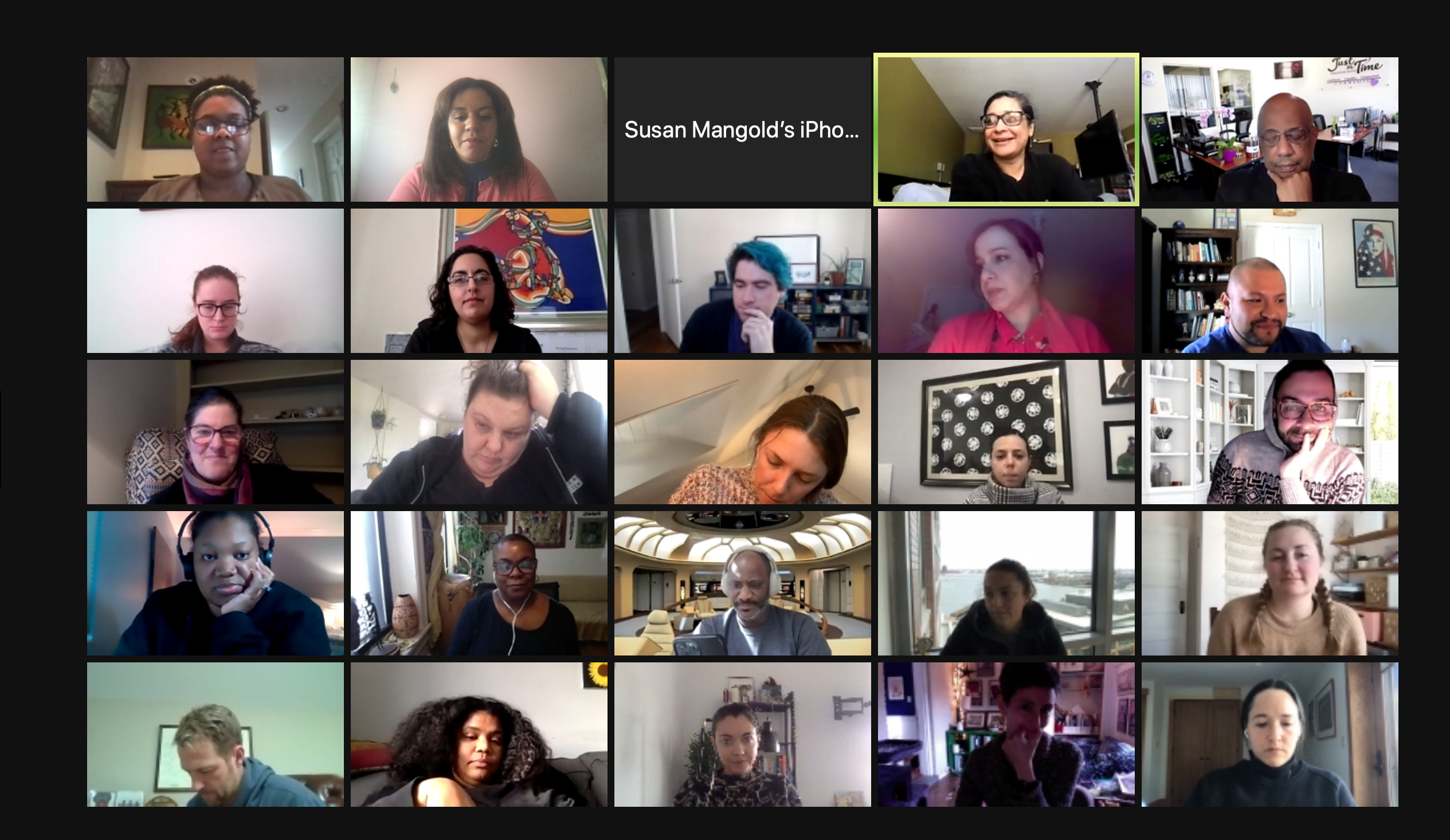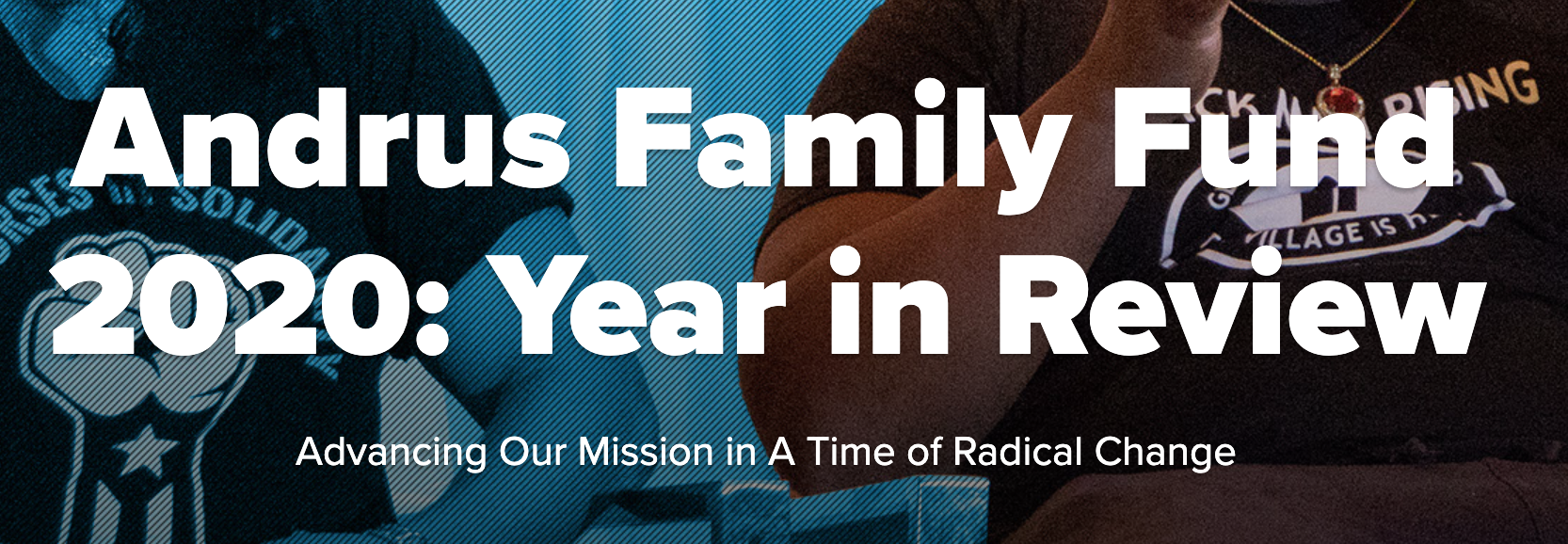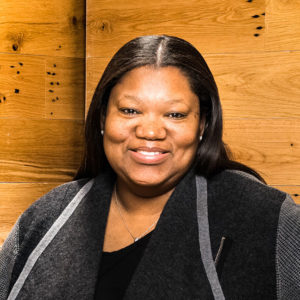Recently, movement leaders, board members and AFF staff gathered (virtually) for our annual board meeting. This meeting was a historic occasion for our fund because we welcomed our first cohort of Movement Partner Advisory Council members — a group of AFF grantee partners focused on youth justice child welfare policy that will collectively craft AFF’s strategic plan for the next 5 years.

That day, we took another step toward making good on the lofty goals we identified last year during our board retreat at the Highlander Center with Reverend Allyn-Steele and Ash-Lee Woodard-Henderson. The three goals:
- Support the field’s demand to close youth prisons in 10 years and assist movement partners in ending the over-criminalization of BIPOC youth nationwide.
- Move more money to grassroots frontline movements.
- Help organize philanthropy to follow the lead of movement communities.
On that day, I asked the group to hold up four words: Community, Alignment, Power and Strategy.
Community in this context means that movement leaders and board members sit together (virtually) to explore how real change happens and how we can do our best work together. Through the expert facilitation of Rusia Mohiuddin, we are creating a culture of collaboration and connection that builds the power of movement organizations. Community also means grappling with the inherently flawed and unjust system of philanthropy and the toxic power dynamic it creates between movement partners and funders. In community, we discuss the places where we’re politically aligned and where we are misaligned in our vision of how change happens. In other words, in community, we learn what transformative change actually looks like.
Why do these encounters of board and movement leaders rarely happen? One major reason is because funders have never been held accountable to communities as stakeholders. It is standard practice for boards to approve strategies that are designed by program officers and directors who often do not collaborate with the communities they intend to serve. The other reason for the rare encounters is because movement partners are incredibly busy! Their time and brilliance are spent on the frontlines pushing for racial justice and building power for young people, and we take that commitment very seriously. But one thing we’ve all come to agree upon is that more authentic proximity — not less — will help us do our most aligned and impactful work. If we are to practice being in a more equitable, transformative relationship with one another — one rooted in interdependence, transformation, learning and grounded in the courage to change — then we have to foster a rigorous, long-term practice that is truly beneficial for communities, not just beneficial to funders who prioritize “learning” above action.
Alignment with today’s work is to follow the leadership of those directly impacted at the center. Not because funders and movements aren’t already aligned in racial justice values — although sometimes there’s a difference between espoused and practiced values — but because we are continuously refining our understanding and practice — PRAXIS — of who should lead and how to support them. The deployment and reclaiming of much-needed resources to support movements to actualize their visions is a necessary part of transformative change work. Bringing together those with the resources and those who need them, and building a practice rooted in anti-racism, healing, and transformation is a rigorous yet necessary endeavor. I believe this proximity between funders and movements will produce political clarity, sharpened focus and, dare I say, impact. Not just impact in communities, families and organizations, but also our own impact as philanthropic allies.
The heart of this work is not an intellectual exercise, but a personal commitment to examine how each one of us is personally implicated in the exploitation of another. Many of us — it is inevitable — are both the oppressed and oppressor in a society whose foundations were built on stolen land, slavery and extractive capitalism. We are here to do the hard work together, as Darnell Moore said in the “Black Freedom Dream” episode of the “Lady Don’t Take No” podcast hosted by Alicia Garza, of getting the “boot off the neck” of the person we are in an oppressive relationship with. Our collective liberation lies in the courageous work of seeing both the privilege and oppression and taking accountability for harm prevention. I invite you to step into self-care, compassion and courage as we witness the dimensions of ourselves (as funders or movement leaders) that we are often afraid to acknowledge — to own and transform our behaviors, and ultimately, our impact.
Finally, our time together is intended to build Power for directly-impacted youth and their communities. Despite the power dynamics between us–funders and movement leaders-–our collaboration is meant to interrogate and transfer power to where it is needed. Who has power in the legislative halls? Who is holding narrative and moral power? How does power show up on the blocks and streets where youth and communities are surviving and seeking to thrive? Who has the power to change the rules and relieve the material and social conditions of marginalized youth? To truly make good on our vision of liberation? Who has the power of resources and capital to ensure these visions come to life and how will they deploy it?
We have the opportunity to build a Strategy that is a model for the broader philanthropic community. A model that firmly believes community must be at the table to inform, lead and design the strategies meant to build long-term community power. Although we proudly see staff as advocates and champions who are often also directly impacted, we are well aware that staff should not be a proxy for directly-impacted communities and leaders. We affirm that it is sophisticated, intelligent and darn right strategic to build philanthropic structures meant to support and strengthen communities’ expertise and position them at the helm.
We are excited for our time together this coming year and hope that the rich conversations and thought partnership between staff, board members and movement partners will transform us all. Our ultimate hope is that the change we create together will live on in our philanthropic structures, policies and culture.
Let’s stay in deep awareness and enjoy building the spaceship for liberated futures we needed yesterday. It all starts with one step, one conversation, one Zoom icebreaker at a time.
Welcome in accountable love, community!






 See how the Andrus Family Fund and grantee partners advanced our mission in a time of radical change.
See how the Andrus Family Fund and grantee partners advanced our mission in a time of radical change.  CC is currently the inaugural Director of Programs and Strategic Initiatives at the
CC is currently the inaugural Director of Programs and Strategic Initiatives at the  As board chair, CC will partner closely with
As board chair, CC will partner closely with